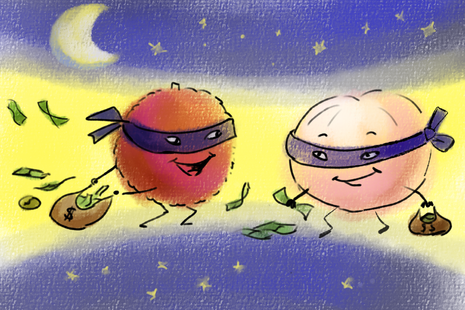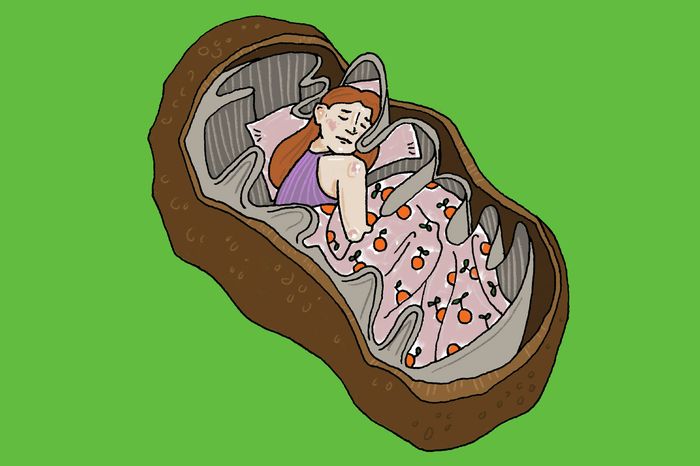Lychees leech your energy
Jenny Jiang uses a financial analogy to explain how lychee toxins can trigger dangerous dips in blood sugar

Summer may be long gone as we indulge in the gloomy Michaelmas term, but a certain summer hangover lingers – not from cocktails, but from lychees. Sweet, fragrant, and juicy, lychees are beloved across much of Asia. But this subtropical fruit hides a paradox: whilst we expect a sugar rush, lychees can sometimes cause the opposite – a dangerous drop in blood sugar, or hypoglycaemia.
But why would a fruit full of natural sugar cause low blood sugar? To answer that, we need to look at your body’s personal finance system to deal with energy – the body’s bank accounts and assets.
Think of your body as a household economy - your blood glucose is like the current account, cash flowing in and out to pay for daily expenses. Your liver acts as the savings account, storing glycogen – a large and branchy sugar molecule that can be rapidly broken down to top up your blood glucose on a ‘rainy day’.
The brain is the CEO with no snack drawer. It’s the most metabolically demanding organ in your body, consuming over 20% of your daily energy despite making up just 2% of your body weight. The brain’s unique wiring means it relies almost entirely on the current account for energy, and has no significant capacity to store glucose or use other fuel sources like fat due to a barrier that protects the brain from toxin substances. The moment the balance falls too low, the brain sounds the alarm with dizziness, confusion, and even seizures.
“The seeds and unripe flesh of lychees contain two natural toxins, known as phytotoxins”
When your current account and savings are depleted, your body tries to access its long-term investments (fatty acids) and deep reserves (other molecules that can be converted into new glucose). These assets take longer to access, like selling a property, but they keep the household running during a crisis.
With multiple accounts and investments, we should be financially sound – right? Well, not when lychees, the ‘bank freezer’, come into play. The seeds and unripe flesh of lychees contain two natural toxins – hypoglycin A and MCPG (methylene cyclopropyl-glycine) – known as phytotoxins, a compound produced by a plant to protect itself from predators.
When you don’t eat for a while, such as overnight, your current account (blood glucose) starts to run low. Your body then starts to use its backup funds. Your body’s first backup is its savings account (glycogen), stored in the liver. It’s a rapid and straightforward way to top up blood glucose levels, but, for someone who is already malnourished or hasn’t eaten in a long time, their savings are already depleted.
“This explains the outbreaks of hypoglycaemia in malnourished children in lychee-growing regions”
When the savings are exhausted, the body tries to access its long-term investments by ‘liquidating’ assets – specifically, breaking down fat through a process called beta-oxidation, and creating new glucose from other sources, known as gluconeogenesis. This is where the bank-freezing lychee toxins come in, locking these vital processes and preventing your body from accessing the energy it needs to function. With no way to make new glucose, your blood glucose levels can fall dangerously low, leading to the symptoms of hypoglycaemia.
This explains the outbreaks of hypoglycaemia in malnourished children in lychee-growing regions, who have consumed large quantities of unripe lychees on an empty stomach. The toxins are present in ripe lychees as well, but at much lower concentrations. With little glycogen reserves, the toxins froze their long-term accounts, and their blood glucose levels crashed.
This doesn’t mean lychees are the bad guy - in healthy individuals eating ripe fruit as part of a balanced diet, the body easily keeps blood glucose under control. In fact, lychees are a valuable source of vitamin C and polyphenols, and preliminary studies suggest that certain seed-derived compounds may have therapeutic potential for diabetes, although further research is needed.
So, the next time you enjoy lychees, remember the body’s economy is at work. It’s only when unripe lychees are eaten in excess on an empty stomach - especially by those who are already malnourished - that the system crashes. For everyone else, you’ll be okay. Enjoy them alongside your usual meals – just don’t skip hall and demolish a kilo of them on their own.
 News / Colleges charge different rents for the same Castle Street accommodation2 March 2026
News / Colleges charge different rents for the same Castle Street accommodation2 March 2026 News / News in Brief: waterworks, wine woes, and workplace wins 1 March 2026
News / News in Brief: waterworks, wine woes, and workplace wins 1 March 2026 News / Climate activists protest for ‘ethical careers policy’1 March 2026
News / Climate activists protest for ‘ethical careers policy’1 March 2026 News / Private school teacher who lied about Cambridge degree barred from teaching27 February 2026
News / Private school teacher who lied about Cambridge degree barred from teaching27 February 2026 News / Angela Merkel among Cambridge honorary degree nominees27 February 2026
News / Angela Merkel among Cambridge honorary degree nominees27 February 2026









